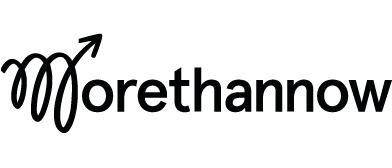The Leadership Dialogue
This week, MoreThanNow hosted a timely and pressing Leadership Dialogue on the future of work.
We were joined by leaders from organisations including AstraZeneca, NatWest, Swiss Re, Phoenix Group, Citi, PwC, Mott MacDonald, Credit Suisse, LSE, JP Morgan, Lloyds, Phoenix Group and UCL. Dr Laura Giurge, shared cutting edge research on how leaders can navigate the new world of work and introduced MoreThanNow’s new Leadership Co-Lab.
Our dialogue focused on three key challenges that we all experience: how we work, when we work and what we do at work.
“The office is a tool, not a destination. No one size fits all and if we are to achieve our shared ambition of having more diverse workforces then a flexible approach to where and when we works is needed – one that takes into account the type of work people are doing as well as their individual circumstances.”
It goes without saying that how we work has been radically changing. Leaders must figure out how to make hybrid and remote work more collaborative and more creative. At the same time, they must also support their own wellbeing and the wellbeing of their teams. People are increasingly under pressure given blurred boundaries between work and home, ongoing time pressure, and instant communication. Laura shared research she conducted with Vanessa Bohns on how organisations can address email urgency bias. We all discussed how leaders can reset the goal of “the office” to help employees find purpose and inclusivity at work.
“We are in a system that was built for a non-hybrid world. How do we make work work in the 21st century digital environment?”
Increasingly employees want more autonomy over when we work. This is challenging for leaders who are used to more traditional 9-5 in-person work environments. It’s further complicated by research (conducted by Laura and Kaitlin Woolley) that finds working non-standard days and hours can reduce intrinsic motivation. With workers increasingly seeking flexible working patterns, it’s imperative that we find how best to support flexible work while protecting motivation and productivity. In their research, Laura and Kaitlin found a way for leaders and employees to reframe non-standard work and boost intrinsic motivation (Giurge & Woolley, 2021). We all discussed how organisations can encourage productivity and motivation in different work environments.
Finally, leaders are predictably wanting to ensure that what we do at work is in the best interests of employees and the organisation. Nowadays more than ever, employees face a paradoxical tension between important and urgent work tasks. All of us can be guilty of being distracted by what appears urgent, at the expense of the most important things we could be focused on. Leaders need to support employees to focus their limited time on what is most important, along urgent tasks. Laura shared research-based examples of how leaders can support employees to dedicate focus time and redesign their workdays around important tasks (one of these examples was conducted in collaboration with MTN and Nationwide, read more here about the ‘Reset’) . Participants echoed the need for leaders to support focused work time for employees.
“We think of hybrid and remote work as the same type of work as office work, but it’s not. It is a different kind of work - with different kinds of norms and values we need to discover.”
These are just a few of the challenges leaders face. Addressing them might seem dauting, but it is not. Now is the time to seek and act on opportunities to create a positive future of work. Through the Leadership Co-Lab, we want to explore:
How can we redefine and rethink what leadership looks like in the new work environment?
How can leaders enhance their own wellbeing, and the wellbeing of their teams, particularly amongst distributed teams?
How can leaders support collaborative and creative work in hybrid and online environments?



